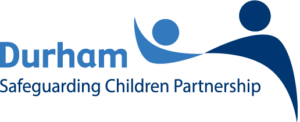Every child and young person has a right to be safe. Safeguarding means keeping you safe from any type of harm or neglect.
All adults have a responsibility to protect you and it is the role of your parents or carers and adults such as teachers, learning mentors, doctors, nurses, social workers, police officers, faith leaders and sports coaches to ensure that you are safe. Wherever you are and whatever you are doing, whether you are at home, school or are chatting online, you have the right to grow up safe from people hurting you or not making sure that you are cared for.
According to the law, there are four main types of abuse that could cause harm or neglect. These are:
- Physical abuse: when an adult deliberately hurts you such as hitting, shaking, throwing, poisoning, burning, drowning or suffocating.
- Emotional abuse: this would happen, for example, when you are being unfairly blamed for everything all the time; or told you are stupid and made to feel unhappy.
- Sexual abuse: an example of sexual abuse would be where you are forced to take part in sexual activities or in taking rude photos.
- Neglect: this is when you are not being looked after properly; for example, not getting enough to eat, or being left alone in dangerous situations.
Children and Young People’s Guide to Working Together to Safeguard Children
A new children and young people’s illustrated guide and animation to the statutory guidance Working Together to Safeguard Children was published in May 2025. This brilliant guide is accompanied by a short animation for children and young people which explains how people who help, support and protect them work together and what they can expect when they need help.
The UK Government has worked in collaboration with children and young people when designing these materials, including the DfE’s Social Care Advisory Board, facilitated by the National Children’s Bureau. We know that children and young people find clear effective communication really important and that they want information to be shared openly with them, so they can understand what services they should receive and how they can access help and support.
The children and young people’s illustrated guide and animation can be used by children and young people independently, or with the support of an adult.
